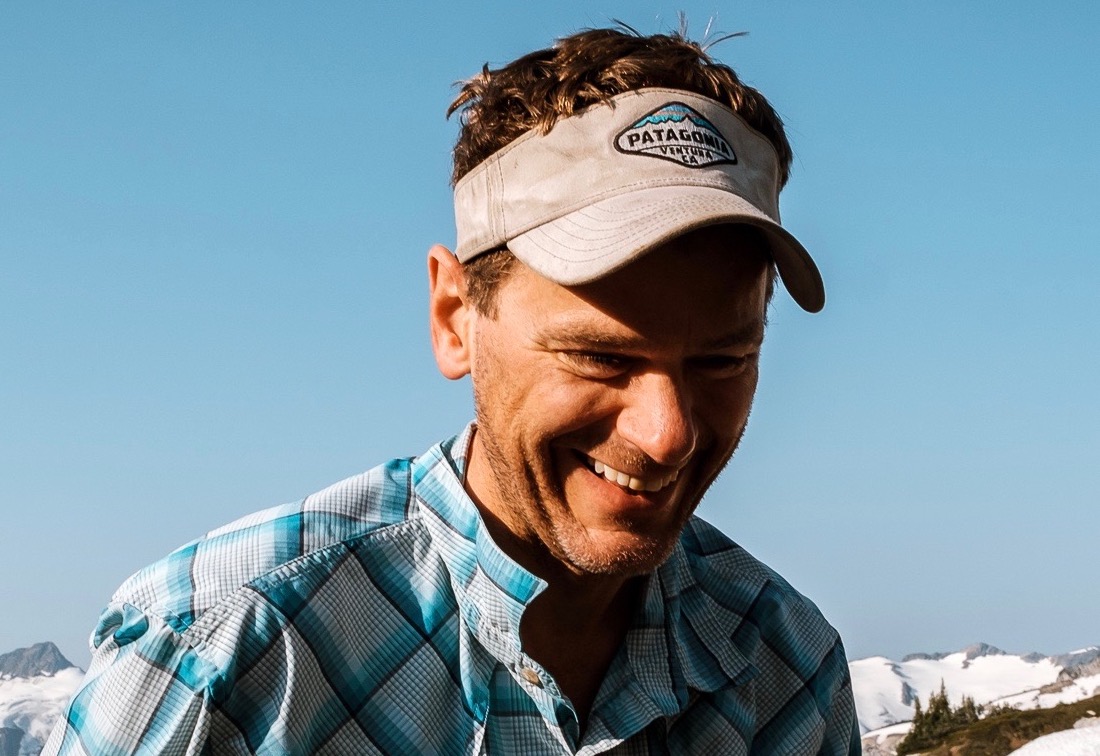A former reporter at the Seattle Times, Christopher Solomon has been a freelance writer since 2002, writing for the New York Times Sunday Magazine; National Geographic; Outside (where he’s a contributing editor); Runner’s World (ditto); and other publications. He was the 2018 Lowell Thomas Travel Writer of the Year, as selected by the Society of American Travel Writers. His work has appeared seven times in the Best American Writing series, including several times in The Best American Travel Writing.
How did you get started traveling?
My father was an Army officer. We were stationed in Europe twice when I was a boy, including three years in Italy. My parents loved to travel, and the dollar was really strong at the time, so my parents could afford to take us everywhere—from London to Cairo to the Dolomites. It made a huge impression on a young kid. Travel became something I was comfortable with, and enjoyed. It didn’t feel particularly intimidating, just exciting. I’ve tried to make that part of my life ever since.
How did you get started writing?
Sadly, I don’t possess a great “I was meant to be a writer” story. I read a ton as a kid. And in college I realized I liked wrestling over term papers—it was hard work, but satisfying. I wasn’t one of those kids who ran the college newspaper, though; I took two journalism courses in college, at the end of my college career. Still, the world they opened to me was really intriguing. After I graduated, I had a few internships at newspapers and magazines. The tug to write continued to grow stronger—especially as I realized I had some aptitude for it. Finally I got a job at a daily newspaper.
What do you consider your first “break” as a writer?
Many of us have been given a few breaks. They matter more than we realize at the time. For me, a huge break was being granted a 3-year internship at the Seattle Times in late 1995, back when newspapers were still flush and still did such things. That internship led to a job that taught me many of the skills that I use today. Another break occurred while I was at the paper: A freelancer who wrote for the Seattle Times was kind enough to introduce me to a travel editor at the New York Times. I pitched her, and a long relationship was born.
As a traveler and fact/story gatherer, what is your biggest challenge on the road?
I have a few challenges when I’m out there doing the job. One is simply the quotidian task of taking good notes when someone is talking—trying to get great quotes, while asking good questions, and also trying to absorb the scene. It’s tough juggling all of that, and I’ll never feel like I’ve figured it out.
The other challenge, while on an assignment of a limited duration, is getting some essence of a place that actually feels both deeper and more accurate, than drive-by travel-writing. Finding some honest story that really feels the pulse of a place, when you’ve parachuted in for a predetermined amount of time, is one of the hardest things for a travel writer to get right.
What is your biggest challenge in the research and writing process?
I’m just a very, very slow writer. I work, and then rework, sentences and paragraphs. Prior to that, I can also get overwhelmed by my own note-taking when it’s time to outline a story. Out in the field I regularly fill several notebooks—not counting the huge amount of research done before going somewhere. Later, it can be hard to bring all that information to heel. It crowds into the head at the end, fighting for space on the page.
I’ve tried a lot of organizational tools, to help me get my notes ordered, and my mind ordered. But nothing has been foolproof. I drink too much coffee during these periods, looking for inspiration at the bottom of a cup, which probably doesn’t help, either.
What is your biggest challenge from a business standpoint?
The ever-challenge for me is the tension between doing the work that personally satisfies, and that I feel passionate about, versus doing the work I have to do to stay afloat, or even the work I feel I should do because it’s about an important environmental topic, etc. The stories I want to do don’t always pay well. Or, they don’t fit cleanly into a “travel section” story. Or, they can take a very long time to develop.
So I often find myself taking on work that I feel I should do, to keep the money coming in. Then I privately resent the work. This is a tension I’m not certain I will resolve anytime soon. One has to eat, after all.
Have you ever done other work to make ends meet?
For a few years, for part of each month, I was writing stories, for MSN.com. It was not particularly interesting work, but the editors were nice, and it paid well. The stories eventually morphed into real estate listicles. But the work paid too well for me to quit. I bought my first (and only) house because of those stories. I’m a big fan of writers having some kind of secure income that they can count on each month. For several years, that was mine.
What travel authors or books might you recommend and/or have influenced you?
John McPhee has been a big influence. Ryszard Kapuściński. Rory Stewart. Tim Cahill. I like Wells Tower’s wry takes on modern travel. My good friend Tim Neville also does some thoughtful travel writing about unexpected places, such as North Korea. We often talk about the craft of it.
I like writers who don’t write about travel in a conventional “newspaper travel section” sense. They know that travel is really about people, and culture, and conflict, and narrative.
What advice would you give to someone who is considering going into travel writing?
Don’t count on travel-writing being a full-time job. Find something else that can sustain you, and then find really great travel stories that you can peel off once and again.
Sure, you can fill your days with some kinds of “travel writing”— hotel round-ups, crap like that (believe me, I’ve done it). But it won’t nourish you, in the long run. The kind of travel writing that really stirs your soul doesn’t happen every day. Spend time thinking hard about your next really good travel story idea, and researching it. Find the character, setting, the narrative tension. Then pitch it. With a little luck, you’ll be headed there.
What is the biggest reward of life as a travel writer?
The reason I most like to travel for work is that it makes me slow down, take off the blinders, and pay attention. If I’m not careful, I can sleepwalk through the hours —worried about bills, or worried about what Twitter is showing me on my phone. But when I’m traveling, and especially when I’m traveling for work, everything matters. Everything is important. I notice all of it.





